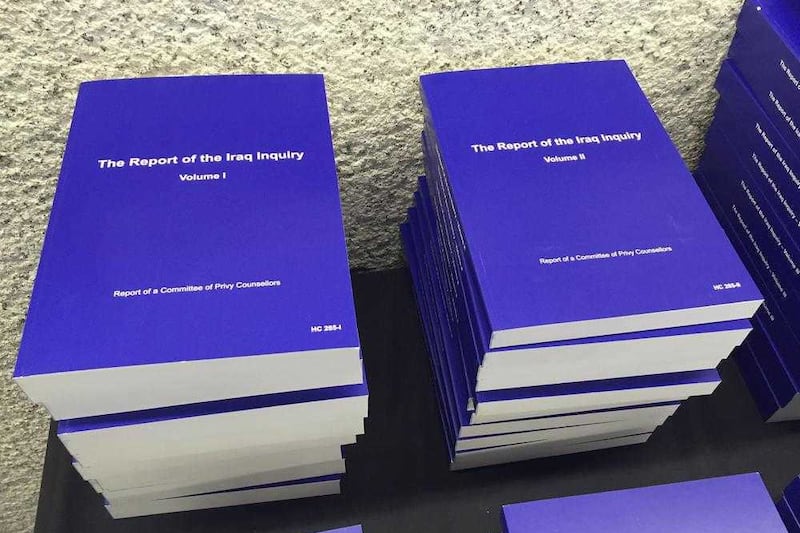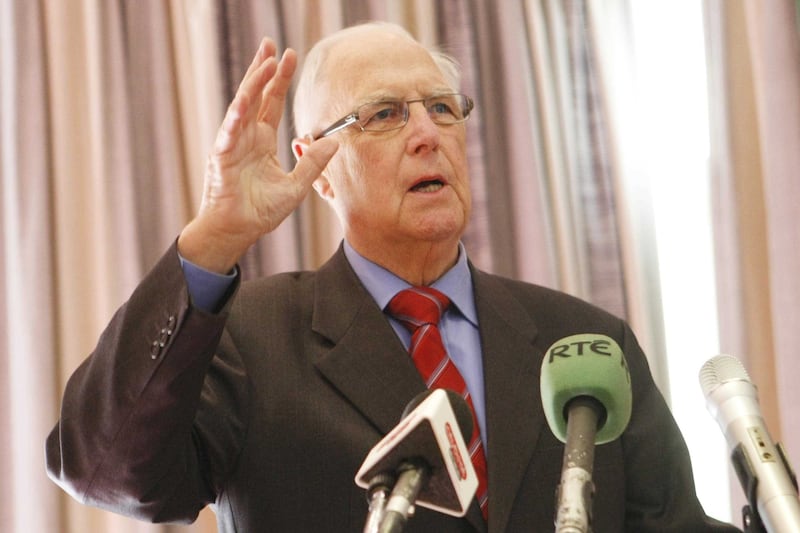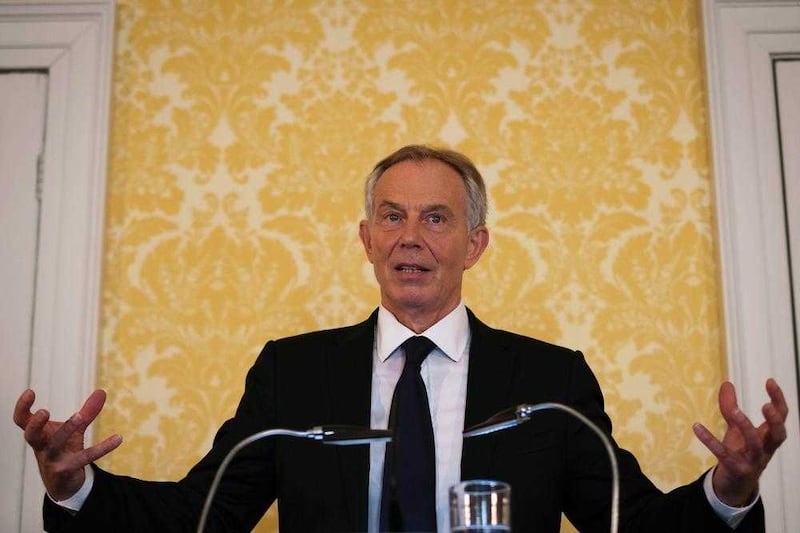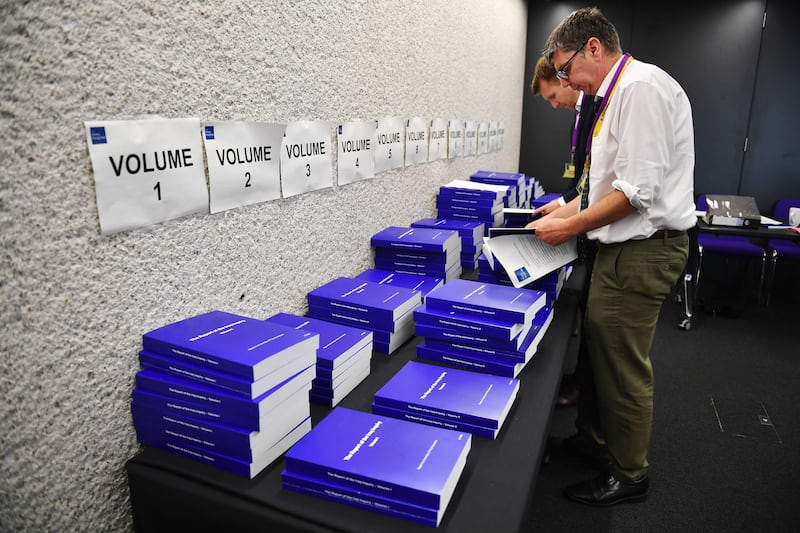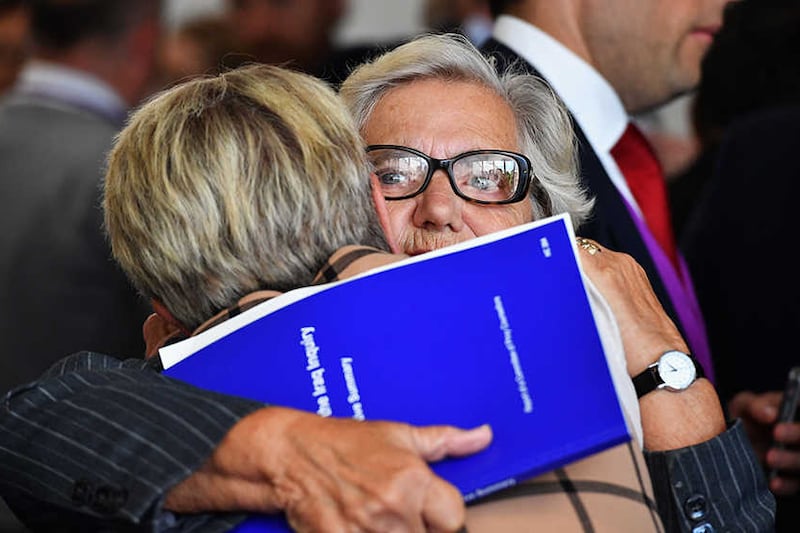TONY Blair was facing the threat of legal action over his decision to take Britain to war in Iraq after a long-awaited official report delivered a damning verdict on his government’s justification, planning and conduct of the military intervention in 2003.
The Iraq Inquiry report said that war was launched on the basis of “flawed” intelligence at a time when dictator Saddam Hussein presented “no imminent threat” and diplomatic options for containing him had not been exhausted. The intervention ended six years later “a very long way from success”, with the “humiliating” spectacle of UK troops in Basra making deals with local militia who had been attacking them.
Families of some of the 179 military personnel killed in Iraq branded the former prime minister a “terrorist”, while Jeremy Corbyn offered an apology on Labour’s behalf for what he described as “a stain on our party and our country”.
Mr Blair said he took responsibility for shortcomings identified by Sir John Chilcot’s report and felt “more sorrow, regret and apology than you may ever know” for the grief of those whose loved ones died.
But he said he still believed he was right to remove Saddam and insisted that the inquiry’s findings should “lay to rest allegations of bad faith, lies or deceit”.
And Sir John rejected Mr Blair’s claims that the bloody insurgency and terrorism which erupted following Saddam’s fall could not have been foreseen.
“We do not agree that hindsight is required,” said Sir John. “The risks of internal strife in Iraq, active Iranian pursuit of its interests, regional instability and al-Qaida activity in Iraq were each explicitly identified before the
invasion.”
Tearful families responded with fury to the details of shortcomings in planning and preparation uncovered by the seven-year inquiry.
Military policeman’s father Reg Keys said it was clear that the prime minister “deliberately misled” the country and that his son Tom “died in vain”, while Roger Bacon, whose son Matthew was killed by a roadside bomb, said the families reserved the right “to call specific parties to answer for their actions in the courts”.
In a lengthy press conference in London, Mr Blair said he would never agree that those who died and were injured in Iraq “made their sacrifice in vain”.
“They fought in the defining global security struggle of the 21st century against the terrorism and violence which the world over destroys lives, divides communities,” he said.
While the Chilcot Report contained “serious criticisms”, it showed that “there were no lies, Parliament and the Cabinet were not misled, there was no secret commitment to war, intelligence was not falsified and the decision was made in good faith”, he said.
Announcing a two-day parliamentary debate on the report next week, Prime Minister David Cameron – who backed war in 2003 – told MPs: “The decision to go to war came to decision in this House. Members on all sides who voted for military action will have to take our fair share of the responsibility.
Meanwhile, former US president George W Bush has backed the arguments of Tony Blair in defence of their decision to invade Iraq in 2003.
Mr Bush insisted the world is better off without despotic Iraqi president Saddam Hussein in power and said “there was no stronger ally” than Britain when Mr Blair was prime minister.



